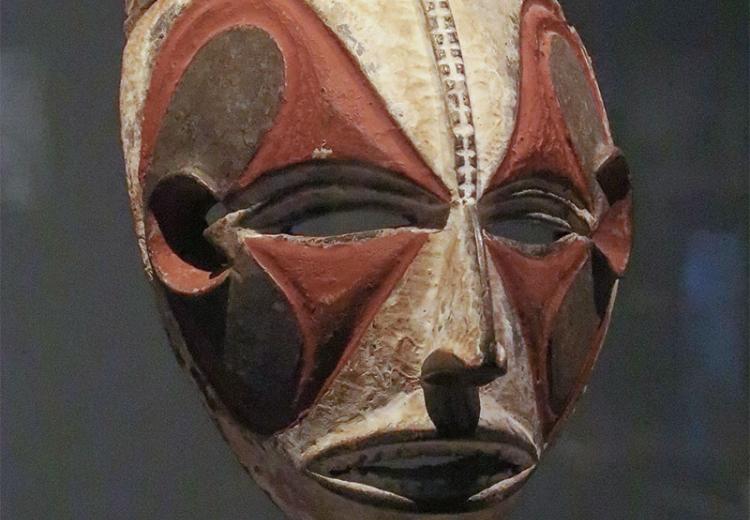Chinua Achebe’s Things Fall Apart: Oral and Literary Strategies

Igbo mask, agbogho mmwo. Southeast Nigeria.
"I believe in the complexity of the human story, and that there’s no way you can tell that story in one way and say, ‘this is it.’ Always there will be someone who can tell it differently depending on where they are standing … this is the way I think the world’s stories should be told: from many different perspectives."
-"Chinua Achebe: The Art of Fiction CXXXVIV," interviewed by Jerome Brooks in The Paris Review, Issue #133 (Winter 1994-5)
Chinua Achebe is one of the most well-known contemporary writers from Africa. His first novel, Things Fall Apart, deals with the clash of cultures and the violent transitions in life and values brought about by the onset of British colonialism in Nigeria at the end of the nineteenth century. Published in 1958, just before Nigerian independence, the novel recounts the life of the village hero Okonkwo and describes the arrival of white missionaries in Nigeria and its impact on traditional Igbo society during the late 1800s.
Things Fall Apart interposes Western linguistic forms and literary traditions with Igbo words and phrases, proverbs, fables, tales, and other elements of African oral and communal storytelling traditions in order to record and preserve African oral traditions as well as to subvert the colonialist language and culture. After situating the novel in its historical and literary context, students will identify the text’s linguistic and literary techniques and analyze the relationship of oral elements to the meanings and messages of the novel.
This lesson introduces students to Achebe’s first novel and to strategies of close reading and textual analysis. It can be used alone or in conjunction with the related lesson Chinua Achebe’s Things Fall Apart: Teaching Through the Novel.
Guiding Questions
What linguistic strategies does Achebe use to convey the Igbo and British missionary cultures presented in the novel?
How does the text combine European linguistic and literary forms with African oral traditions?
How does Achebe’s incorporation of oral elements into Things Fall Apart contribute to the projects of telling one’s own story and creating a new view of the world?
Learning Objectives
Describe elements of European and African literary traditions.
Draw connections between aspects of Nigerian culture and history to literature.
Analyze how historical events are represented in fiction.
Examine the effectiveness of literary devices and orality in literature.
Evaluate how narrative and audience perspective are culturally-positioned.
Evaluate strategies that authors use to invoke and speak to specific audiences.
